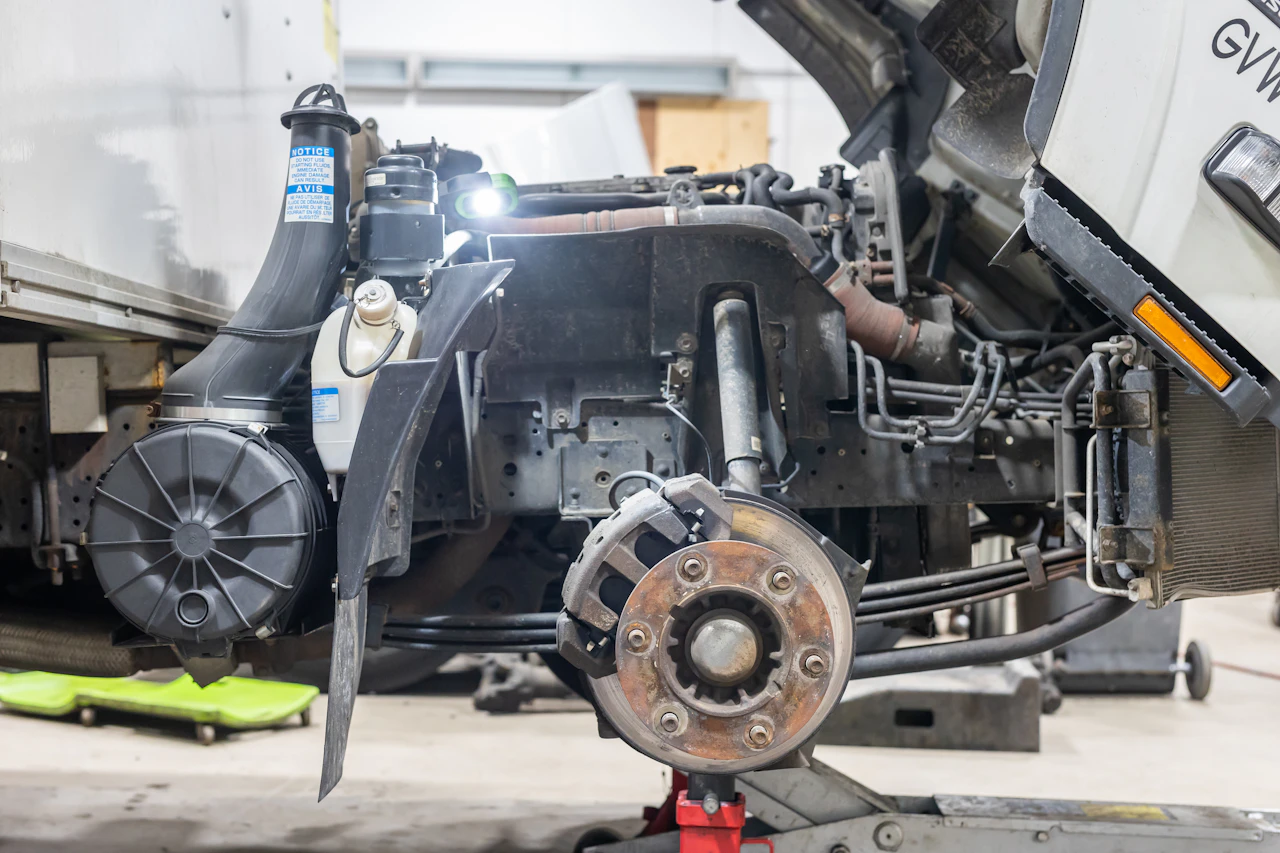Smarter Maintenance Starts with Data, Not Downtime
When it comes to keeping commercial trucks on the road, traditional maintenance schedules just don’t cut it anymore. Sure, preventive maintenance is still vital—but today’s fleets are taking things a step further. Enter predictive diagnostics—a data-driven approach to spotting issues before they become full-blown engine failures.
At National Fleet Management, we use predictive diagnostics to help clients save time, money, and headaches. By using real-time data from onboard telematics, sensors, and ECMs, we can monitor engine performance and predict when things are going sideways—before you’re stuck on the side of the road.
Let’s break down how predictive diagnostics can help you dodge the top 5 most common engine failures in the fleet world.
1. Turbocharger Failure
Turbochargers are workhorses. They force more air into the combustion chamber, allowing your diesel engine to produce more power without increasing fuel use. But they’re also sensitive. Heat, soot, and oil starvation can cook a turbo fast.
Predictive Diagnostics Catch:
- Rising exhaust temperatures
- Lag in boost pressure
- Oil flow inconsistencies
- Imbalance in air/fuel ratio
By monitoring boost pressure sensors and exhaust gas temperature (EGT) readings, predictive systems can warn you when a turbo is beginning to fail—often weeks before it actually does.
Why it matters: Turbo replacements are expensive, and failure mid-trip can leave your truck derated or stranded. Catching early signs means you can replace parts during scheduled downtime.
2. Fuel Injector and Fuel System Failures
Diesel engines require precise high-pressure fuel injection to function correctly. When injectors get clogged or start leaking, you’ll see poor fuel economy, loss of power, and eventually, internal damage.
Predictive Diagnostics Catch:
- Low fuel rail pressure trends
- Extended crank times
- Excessive fuel trims
- Cylinder misfire patterns
These systems can analyze thousands of fuel pressure readings in real-time. A sudden dip—or even a slow, consistent drop—can trigger alerts, prompting your shop to clean, replace, or recalibrate the injectors before catastrophic failure occurs.
Bonus: You’ll save on fuel, too. Efficient injectors mean more bang for your buck per gallon.
3. Cooling System Breakdown
Engine overheating is one of the leading causes of sudden breakdowns. It’s also one of the easiest to prevent—if you’re watching the right data.
Predictive Diagnostics Catch:
- Coolant temperature spikes
- Irregular thermostat readings
- Low coolant levels
- Fan clutch performance drops
Most cooling system failures start small—like a sticky thermostat or a cracked hose—and escalate into blown head gaskets or warped cylinder heads. Predictive diagnostics give you early alerts when coolant temperatures start trending higher than normal under load.
Why it matters: Heat is an engine killer. Getting ahead of these issues prevents warped engine blocks, lost loads, and massive repair bills.
4. EGR and Emissions System Failures
Let’s be honest: emissions systems are complex, annoying, and expensive. But they’re also unavoidable. From EGR valves to DPFs, these systems are riddled with sensors that tell you something’s wrong—often when it’s already too late.
Predictive Diagnostics Catch:
- EGR flow inconsistencies
- DPF pressure differential spikes
- Regeneration cycle inefficiency
- NOx sensor fluctuations
By reading and interpreting sensor data trends, predictive diagnostics can alert you when your EGR cooler is clogging, your DPF is building excessive soot, or your regen cycles are too frequent.
Pro Tip: Early warning means you can perform a clean or forced regen before your truck derates or throws a fault code. That’s less downtime and fewer compliance headaches.
5. Crankcase and Oil Pressure Problems
When it comes to internal engine health, oil pressure and crankcase pressure are king. Low oil pressure can be a sign of pump failure, worn bearings, or oil starvation. Meanwhile, high crankcase pressure could mean worn piston rings or excessive blow-by.
Predictive Diagnostics Catch:
- Fluctuations in oil pressure under load
- Crankcase pressure trends
- Oil dilution by fuel or coolant
- Sudden viscosity changes
Advanced systems can monitor these readings across hundreds of hours of engine runtime, spotting gradual degradation in performance that manual checks simply miss.
Why it matters: Oil issues often snowball silently—by the time a dash light comes on, the damage is already done. Predictive alerts give you a heads-up long before things turn terminal.
Benefits Beyond Avoiding Breakdowns
Let’s talk bottom line—predictive diagnostics don’t just prevent repairs, they optimize everything about how you maintain your fleet.
Real Benefits Include:
- Reduced unscheduled downtime
- Improved parts forecasting and inventory control
- Lower maintenance costs through condition-based service
- Longer engine lifespan
- Faster repair turnaround from accurate diagnosis
Instead of relying on mileage intervals or “it sounds weird,” you’re using hard data to make maintenance decisions. That means no more over-servicing or under-reacting.
The Power of Partnering with the Right Team
Predictive technology is only as good as the people interpreting it. At National Fleet Management, we use tools like telematics integration, ECM data downloads, and real-time fleet health dashboards to help our customers make informed decisions.
Our technicians don’t just plug in a scanner and clear codes—we analyze trends, track sensor deviations, and create custom maintenance strategies based on your truck’s actual behavior on the road.
If you want fewer breakdowns and smarter operations, it’s time to move from reactive to predictive.
Conclusion
Engine failures don’t happen out of nowhere—they leave breadcrumbs. With predictive diagnostics, you can follow the trail, act early, and prevent a $20,000 mistake from wrecking your week.
From turbochargers to fuel systems, cooling components, emissions gear, and oil pressure sensors, predictive systems give you the visibility and control needed to manage your fleet proactively, not reactively.
It’s not just the future of maintenance—it’s how the most reliable fleets run today. And at National Fleet Management, we’re leading the charge.

